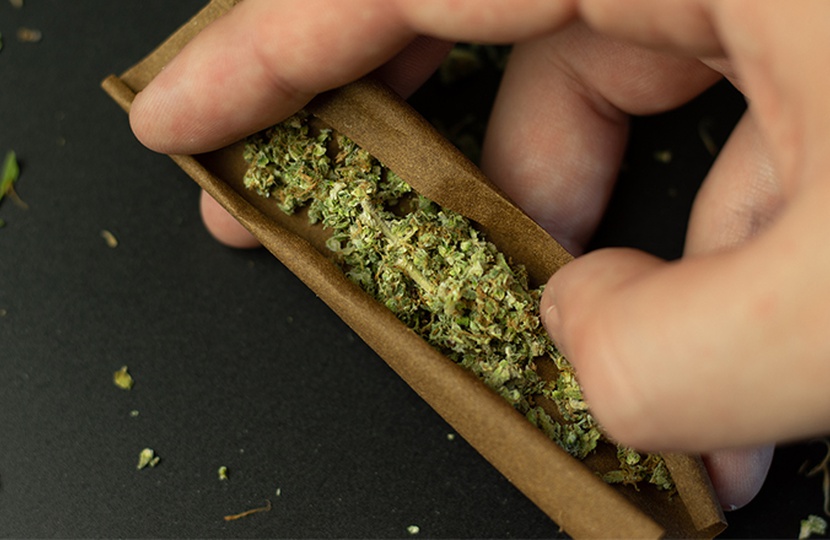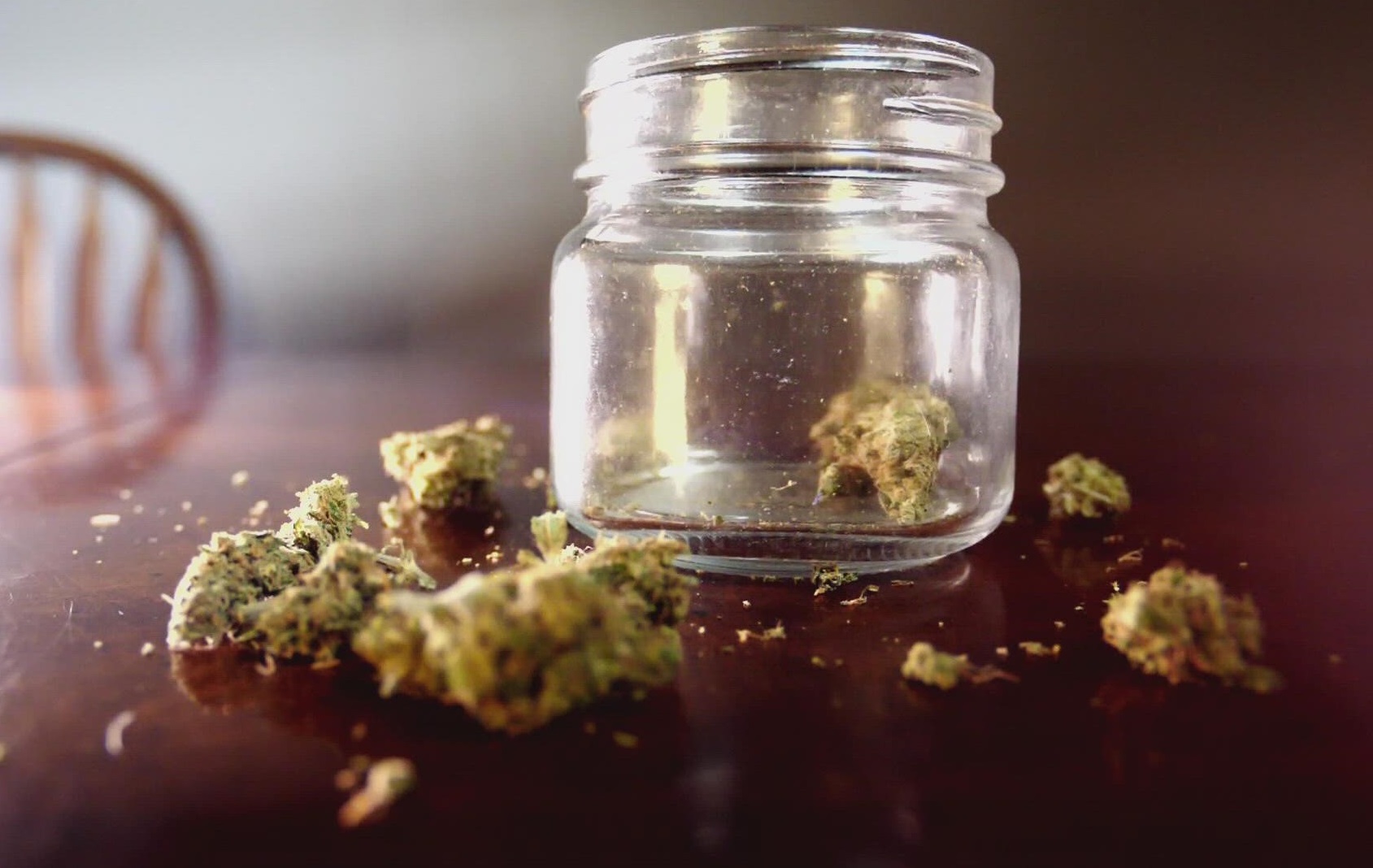Uncategorized
What is Delta-8 THC: Key Facts on This Cannabis Component
In recent years, the spotlight has increasingly turned towards Delta-8 THC, a lesser-known cannabinoid found in the cannabis plant. As interest in alternative cannabinoids grows, understanding Delta-8 THC becomes essential. Let’s dive in and unravel the mysteries surrounding this intriguing cannabis component.
Understanding Delta-8: A Simple Explanation
What is delta 8 thc? Delta-8 THC, also known as delta-8 tetrahydrocannabinol, is a naturally occurring cannabinoid found in small amounts in both hemp and cannabis plants. It is gaining popularity, particularly in states where it is legal, as an ingredient in various products like gummies, vape cartridges, and capsules. This compound is known for producing a gentle, euphoric sensation similar to that of marijuana but with milder effects. Some individuals utilize it to alleviate symptoms of conditions such as stress, depression, or chronic pain, although there is limited scientific evidence supporting its efficacy for these purposes.
Most commercially available delta-8 is synthesized in laboratories using cannabidiol (CBD) extracted from hemp plants and various chemicals. This lab-produced delta-8 tends to be more potent than naturally occurring delta-8. Since the production of delta-8 is not regulated by the FDA, these products may not undergo rigorous testing for safety or quality. This raises concerns about potential risks associated with the use of delta-8 products, as harmful chemicals could be used in the synthesis process or formed as byproducts.
What Are Cannabinoids?
Cannabinoids are chemical compounds found in cannabis plants, such as marijuana and hemp, numbering over 100. While some cannabinoids alter brain function (psychoactive), others do not.
The main cannabinoids are tetrahydrocannabinol (THC) and CBD.
Certain cannabinoids, approved by the FDA, serve medical purposes, such as managing seizures and alleviating chemotherapy-induced nausea and vomiting.

How Delta-8 THC Differs from Other Cannabinoids
The Increasing Popularity of Delta-8
What is delta 8? Why is there a rising interest in delta-8? One reason is its similarity in chemical makeup to its more well-known counterpart, delta-9 tetrahydrocannabinol (delta-9 THC), the primary psychoactive compound in marijuana.
Delta-8 versus Delta-9
Both delta 8 weed and delta-9 are types of THC. However, when people talk about THC, they typically mean delta-9, which is abundant in marijuana. While delta-8 doesn’t induce as strong of a high as delta-9 THC, it can still impact mood, cognition, emotions, and behavior.
In some circles, delta-8 is colloquially referred to as “marijuana lite” or “diet weed.” Moreover, common THC-related side effects such as paranoia, anxiety, and drowsiness are generally less pronounced with delta-8 compared to delta-9.
Comparison: Delta-8, CBD, and Delta-10
CBD can be derived from either hemp or marijuana plants, both falling under the Cannabis sativa category, with hemp containing notably lower THC levels compared to marijuana. Unlike delta-8, CBD does not trigger a psychoactive effect.
Both thc delta 8 and CBD are accessible in various products online or in retail outlets, with pure CBD also available via prescription, sanctioned by the FDA for managing epilepsy.
Extensive research is underway regarding CBD’s potential therapeutic uses, encompassing conditions such as anxiety, diabetes, multiple sclerosis, Parkinson’s disease, and schizophrenia, while delta-8’s therapeutic properties are less elucidated.
Delta-10 THC, akin to delta-8 and delta-9, can be synthesized from hemp in laboratory settings. Nevertheless, its potential health advantages and mechanisms of action remain predominantly unexplored.
Some proponents suggest that delta-10 may provide mood elevation and enhanced concentration without inducing the pronounced high associated with delta-8. Despite claims of anxiety alleviation and other health merits linked with delta-10 products, scientific substantiation is presently insufficient.
Comparison: Delta-8, CBD, and Delta-10
CBD can be sourced from both hemp and marijuana plants, belonging to the Cannabis sativa family, with hemp containing significantly lower THC levels compared to marijuana. Unlike delta-8, CBD does not induce a psychoactive high.
Both delta-8 and CBD are available in various products online or in stores, with pure CBD also obtainable through prescription, approved by the FDA for treating epilepsy.
CBD is under extensive research for potential therapeutic applications, including anxiety, diabetes, multiple sclerosis, Parkinson’s disease, and schizophrenia, whereas delta-8’s therapeutic properties are less understood.
Delta-10 THC, belonging to the same chemical group as d8 thc and delta-9, can be synthesized from hemp in laboratories. However, its potential health benefits and mechanisms of action remain largely unexplored.
Some individuals assert that delta-10 may offer mood enhancement and improved focus without causing as intense a high as delta-8. Despite claims of anxiety relief and other health benefits associated with delta-10 products, scientific validation is currently lacking.
Delta-8 versus HHC
Hexahydrocannabinol (HHC) is a derivative of THC that undergoes a chemical process known as hydrogenation. Like delta-8, it originates from hemp and is commonly present in various products, ranging from gummies to vape liquids.
Both HHC and delta-8 interact with brain receptors regulating bodily functions like sleep and memory. However, their effects can differ perceptibly. Users report that HHC induces sensations akin to delta-9 THC, potentially resulting in a more pronounced high compared to delta-8.
Discover more about the distinctions between CBD and THC.
How Is Delta-8 Utilized?
Delta-8 can be consumed in several ways, including:
- In edible forms such as brownies or gummies
- In liquid extracts referred to as tinctures, which can be added to food or beverages or placed beneath the tongue
- Inhaled as vaporized concentrates like oil or wax
- Smoked as buds, flowers, or hemp treated with delta-8 concentrate
- In capsule form for oral ingestion
- Applied to the skin via creams, lotions, or patches
Delta-8 Gummies
Delta-8 gummies are created by infusing delta-8 into soft, fruit-flavored candies. Depending on the manufacturer, each gummy may have between 10 to 50 milligrams of delta-8. However, due to the lack of FDA regulation, the exact dosage can’t be guaranteed.
Starting with a small dose, like a fraction of a gummy, is recommended for safety. It’s advised to wait up to 2 hours to assess the effects before considering more.
Exercise caution with delta-8 gummies and other similar edibles around children, who might mistake them for regular treats. Delta-8 can pose risks to both children and pets.
Delta-8 Cartridges
Vape cartridges, also known as carts, are available pre-filled with delta-8 liquid or can be refilled with vaping liquid. These cartridges are connected to a reusable vape battery, heating them to produce inhalable vapor. Similar to delta-8 edibles, these products lack regulation, leading to uncertain THC levels across brands. Delta-8 carts often contain flavorings, additives, and other cannabinoids.
The safety of vaping delta-8 remains largely unknown. The Drug Enforcement Administration advises against vaping any substance due to potential risks, particularly for adolescents and young adults with developing brains.
Delta-8 Pens
Delta-8 liquid is also available in disposable vaping devices known as cartridges. Additionally, there are dab pens designed for inhaling dense, highly concentrated cannabinoid substances like wax or shatter.
Impact of Delta-8 THC on the Body
Psychoactive Effects of Delta-8 THC
From a chemical standpoint, delta-8 THC closely resembles delta-9 THC found in marijuana. The primary difference lies in the positioning of a bond between two carbon atoms. This variance results in less affinity between delta-8 and the cannabinoid receptor located on cells within the body. Consequently, the high induced by delta-8 is milder compared to that of delta-9.
Interaction of Delta-8 THC with the Endocannabinoid System
The endocannabinoid system (ECS) comprises a network of cell signaling and receptors dispersed throughout the body. Among these receptors, CB-1 receptors, predominantly found in the brain, play a crucial role in regulating various central nervous system functions such as mood, appetite, body temperature, pain perception, and alertness.
CB-1 receptors rely on endocannabinoids, small particles in the body, to activate. Delta-8, with a structure similar to endocannabinoids, can engage these receptors and essentially “take over” the endocannabinoid system temporarily, leading to its psychoactive effects. Delta-9, with an even closer resemblance to endocannabinoids, operates similarly.
The impact of delta-8 THC on brain chemistry remains unclear due to its lack of regulation and limited research. However, cannabinoids, in general, are believed to transiently elevate dopamine levels in the brain, which may contribute to feelings of well-being.

Delta-8 THC: Potential Hazards and Adverse Outcomes
Comprehending the effects of delta-8 THC on well-being is hindered by a scarcity of comprehensive research. Although anecdotal accounts, frequently shared on social platforms, imply its use alongside prescription medications for depression and substance abuse, assertions of its advantages such as alleviating nausea, enhancing appetite, pain alleviation, mental health enhancement, and antiemetic effects during cancer therapies lack substantial scientific backing. Despite its ready availability, delta-8 THC carries inherent risks.
Immediate adverse reactions linked to delta-8 THC might encompass confusion, anxiety, lethargy, vertigo, fluctuations in heart rate and blood pressure, numbness, hallucinations, vomiting, tremors, and loss of consciousness. If encountering any of these symptoms post-delta-8 product usage, seeking medical aid promptly is imperative. In instances of emergencies or inadvertent consumption by children, urgent medical intervention is paramount.
Avoiding the use of delta-8 or any cannabis-derived substance during pregnancy or lactation is recommended due to potential hazards to maternal and fetal well-being.
The enduring effects of delta-8 THC remain largely uncertain due to insufficient research. However, insights from studies on delta-9 THC propose possible cognitive impairments and risks to brain health with prolonged usage. Moreover, additives in delta-8 products might pose long-term health hazards, as demonstrated by discoveries of harmful elements like lead and mercury in certain delta-8 vape oils, emphasizing the necessity for further scrutiny into its safety profile.
Is Delta-8 Legal?
Delta-8 THC has gained popularity due to its legal status in most states, unlike its heavily regulated counterpart, THC. Extracted mainly from CBD derived from hemp, which is legally farmed across the U.S., delta-8 occupies a legal gray area. While hemp’s legality stems from the federal farm bill of 2018, which removed hemp and its derivatives from controlled substances due to their low THC levels, delta-8 isn’t explicitly mentioned in the bill. Exploiting this loophole, advocates and sellers market delta-8 products legally, often without age restrictions, making it the fastest-growing product in the hemp industry.
However, the lack of oversight and lab testing raises safety concerns among chemists and scientists regarding delta-8 products. Impurities, including elevated THC levels, may be present in products labeled as delta-8. Consequently, some states, like New York and Colorado, are starting to restrict or prohibit delta-8 usage.
Consuming delta-8 THC in states where it’s illegal carries risks. Possession, production, or sale of delta-8 in states where it’s prohibited can lead to legal charges. Even in states where delta-8 is legal, driving under its influence can result in legal consequences.
Where to Get Delta-8?
Delta-8 products can be found without a prescription at various locations such as gas stations, convenience stores, as well as cannabis and vape shops. Moreover, they are readily available from numerous online retailers.
It’s important to acknowledge the absence of standardized quality control for these products and their ingredient lists. Additionally, distinguishing delta-8 products from CBD, which lacks psychoactive effects, can be challenging.
Will It Affect THC Tests?
The likelihood of testing positive for THC varies depending on several factors. Delta-8, being a form of THC, may trigger a positive result in drug tests, although these tests primarily screen for delta-9 THC. Moreover, individuals may respond differently to cannabinoids based on the products used and duration of use.
Currently, standard urine drug tests do not differentiate between various cannabinoids. Hence, it is prudent to refrain from using delta-8 products if facing an impending drug test.


